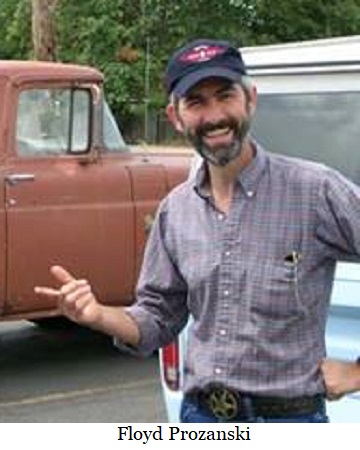Is this prohibition in the name of public health?
If
SB 832, has been introduced by Senator Prozanski (D-Eugene) on behalf of Animal Wellness Action and Center for a Humane Economy. The Animal Wellness Action based in Washington D.C. and the Center for Human Economy headquartered in Bethesda, Maryland both have similar mission statements around preventing cruelty to animals by promoting, enacting and enforcing good public policies and encouraging corporations to honor their duties to social responsibility.
If
SB 832 is passed into law, all mink farms in Oregon could close by the end of the year. According to the Oregon Department of Agriculture, there are 11 state-permitted mink farms in Oregon -- eight in Marion county, one in Linn and two in Clatsop. If adopted into law, Oregon would lead the nation by being the first state to adopt a prohibition on mink farming.
The legislation mandates that mink farm owners not operate unless they have tested negative for COVID-19 within previous 10 days and directs the State Department of Agriculture to establish and implement contact tracing for mink farm workers. However, even if the farm workers remain continuously COVID negative the operation of the farm would only continue until the Oregon Health Authority determines the soonest feasible date for implementing prohibition all together.
More than 85% of pelts used in the world’s fur trade come from small, family-run farms. There are an estimated 275 mink farms in the US covering 23 states. Wisconsin is the leading mink-producing state with over $2.9M in pelts produced in 2019 out of the total $59M produced US wide. Oregon is the 4th largest producer in the US. Today’s farm-raised mink are among the world’s best cared-for livestock and are nationally regulated. In addition, mink farmers voluntarily adhere to stricter codes of animal husbandry than many other species farmers.
A D V E R T I S E M E N T

A D V E R T I S E M E N T
So why are the mink farms being target for extinction in Oregon? The bill does not state why, but rather appears to tie the mink and mink farmers to COVID-19 disease transmission. The bill may also be looking to legally address the elimination of mink farms after an experience in Denmark last fall where a COVID-19 mutation appeared in a mink farm. In response to that mutation, Denmark ordered farms to exterminate the entire mink population of the Country -- a total of 17 million minks. However, the legality of such an order is now being questioned and Danish Prime Minister Mette Frederiksen has apologized for the killing calling it a “regrettable mistake†and admitting the government may not have had the legal jurisdiction to kill so many animals. Passing
SB 832 would circumvent any legalities of ordering the elimination of the mink and the mink farms.
However, the Centers for Disease Control says, “At this time, there is no evidence that animals play a significant role in spreading the virus that causes COVID-19.†The CDC did note that people spread the COVID-19 virus to mink, and that mink can spread the virus to other mink. However, “the risk of animals spreading COVID-19 to people is considered to be lowâ€.
With such a small portion of the total global market, some might say that eliminating mink farming in Oregon will only affect a few farms and with go a long way to protect those in the state. Marc Kaufman, a fur merchant in New York City whose family has been in the business since 1870 would agree with that line of thinking. He states in an NBC News report on December 1,2020 that there is no reason for his industry to worry. “With furs, if it’s not made one place, it’s made some place else. Demand is there and need for the product is there. If Copenhagen doesn’t farm the skins, Russia will. If Russia doesn’t, China will. Either way there is gonna be a supply because there is demand.â€
However, with no concrete evidence that mink farms or specifically Oregon mink farms are contributors to COVID-19 transmission, it begs to question if the requestors of the bill are asking for this prohibition in the name of public health, or is it an excuse to legally eliminate an industry that has been under fire by animal activist groups for years?
SB 832 has not been scheduled for a hearing so these questions may all be answered during the public heearing.
--Terese Humboldt| Post Date: 2021-03-11 08:55:40 | Last Update: 2021-03-11 09:05:31 |







